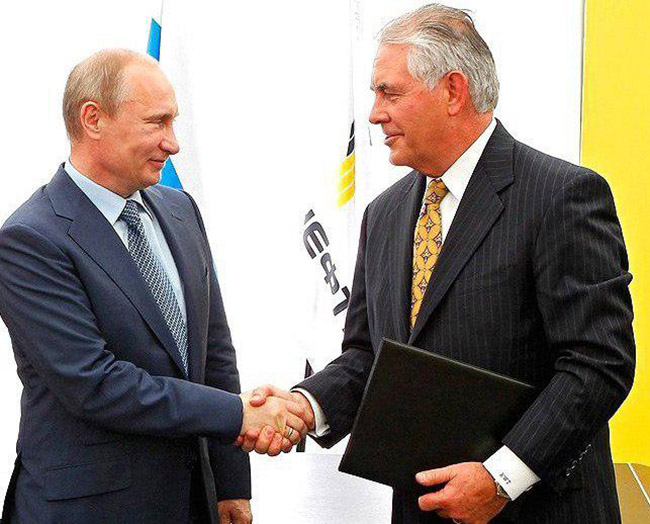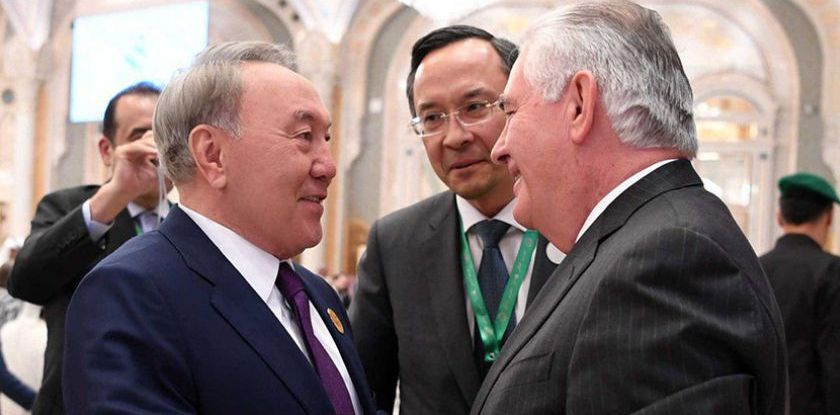This fall, Kashagan may update its obligations on the oil production drop due to the planned production increase at the Kashagan deposit. This announcement was made by Kazakhstan’s Ministry of Energy Kanat Bozumbayev. He chose to do so not at the OPEC meeting in Vienna but at home – on the Astana TV-channel.
The minister said that he had warned Russia and Saudi Arabia – the main “big cartel” architects – about the possibility that Kazakhstan may not meet the production decrease obligations. “Because we have Kashagan”, Bozumbayev explains.
This seems like a perfect explanation. There is, however, a “but”. As KazakhSTAN 2.0 had already noted, Kashagan does not belong to Kazakhstan, it belongs to a consortium of investors currently managed by ExxonMobil. That very same ExxpnMobil that Rex Tillerson was in charge of before he became the US Secretary of State (On the photo – CEO of ExxonMobil Rex Tillerson and Russian President Vladimir Putin).

Now, in his new position as the US Secretary of State, Rex Tillerson speaks openly against OPEC and its practices. The offshore and shale oil producers support his statements by increasing the production rate. Now (what a coincidence!) Kashagan will join them as well.
Actually, there is no point in looking for some kind of conspiracy here. From the very beginning, the oil players considered the Caspian oil in general and Kashagan in particular as the world market regulator capable of influencing OPEC. It is enough to read any 1990s publication to realize that. However, only now, when the US ExxonMobil got down to business, is this strategy being implemented.
In this situation, Kazakhstan becomes a venue for the new big game. This region had played a similar role at the beginning of the 20th century. Of course, back then, oil as a strategic resource did not exist; there was an exceptionally open confrontation among the empires and their ambitions. And China was not a factor. Now, due to the number of the participants and the quantity of the bets, the game possesses more complexity and, therefore, is less predictable.
With a great degree of certainty, we can introduce the following scenario. If the “big agreement” falls to pieces, it will lead to the oil price decrease which, in its turn, will trigger the ruble exchange rate collapse. Then, Kazakhstan will be forced to “drop” tenge in order not to lose the remnants of the national production. Not to mention the already approved budget revenues.
As for other possible scenarios, they are up to ExxonMobil.
See also: The Grand “Sawcut” of Kashagan.




